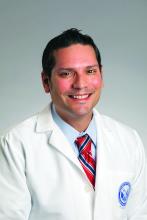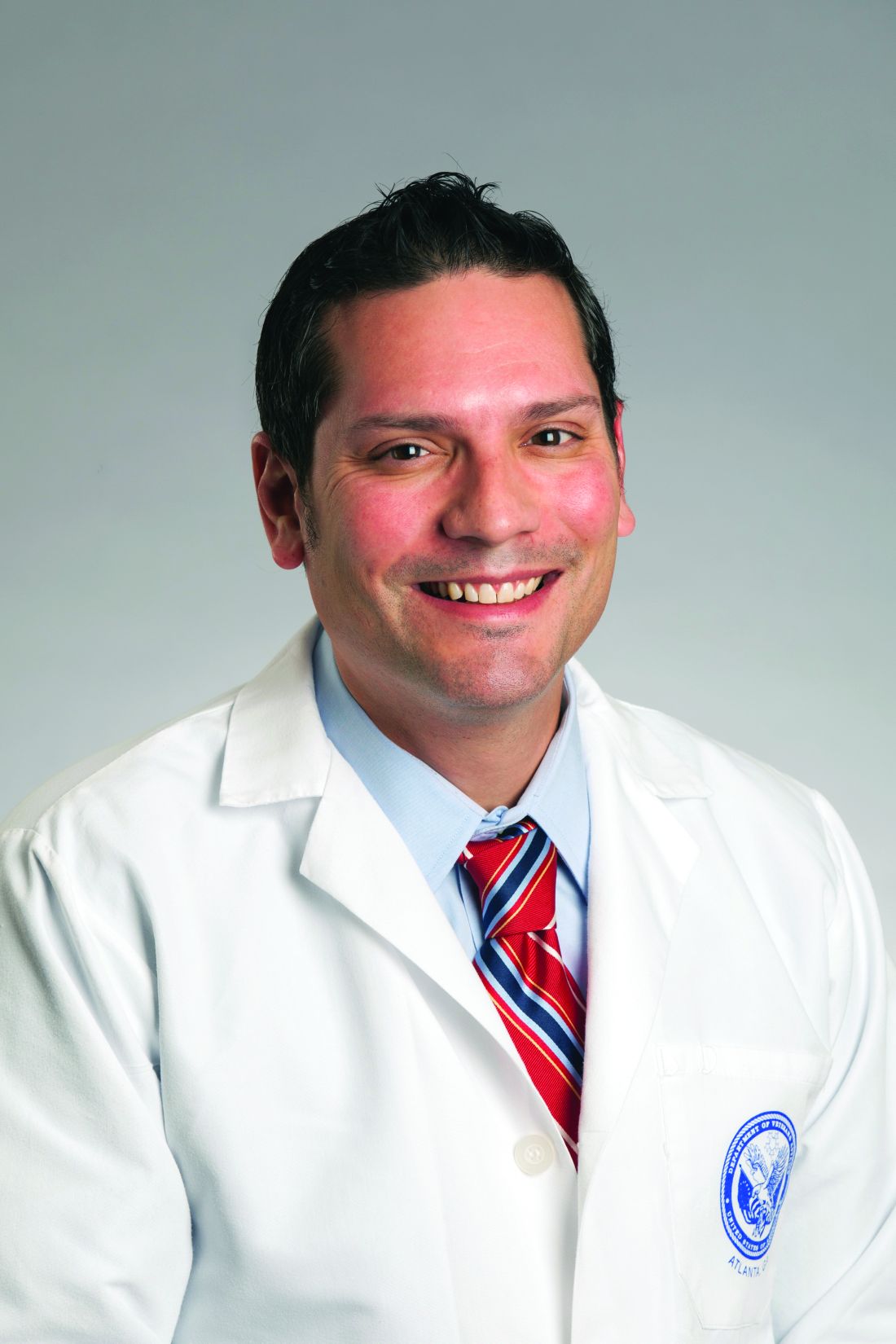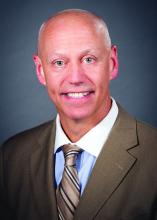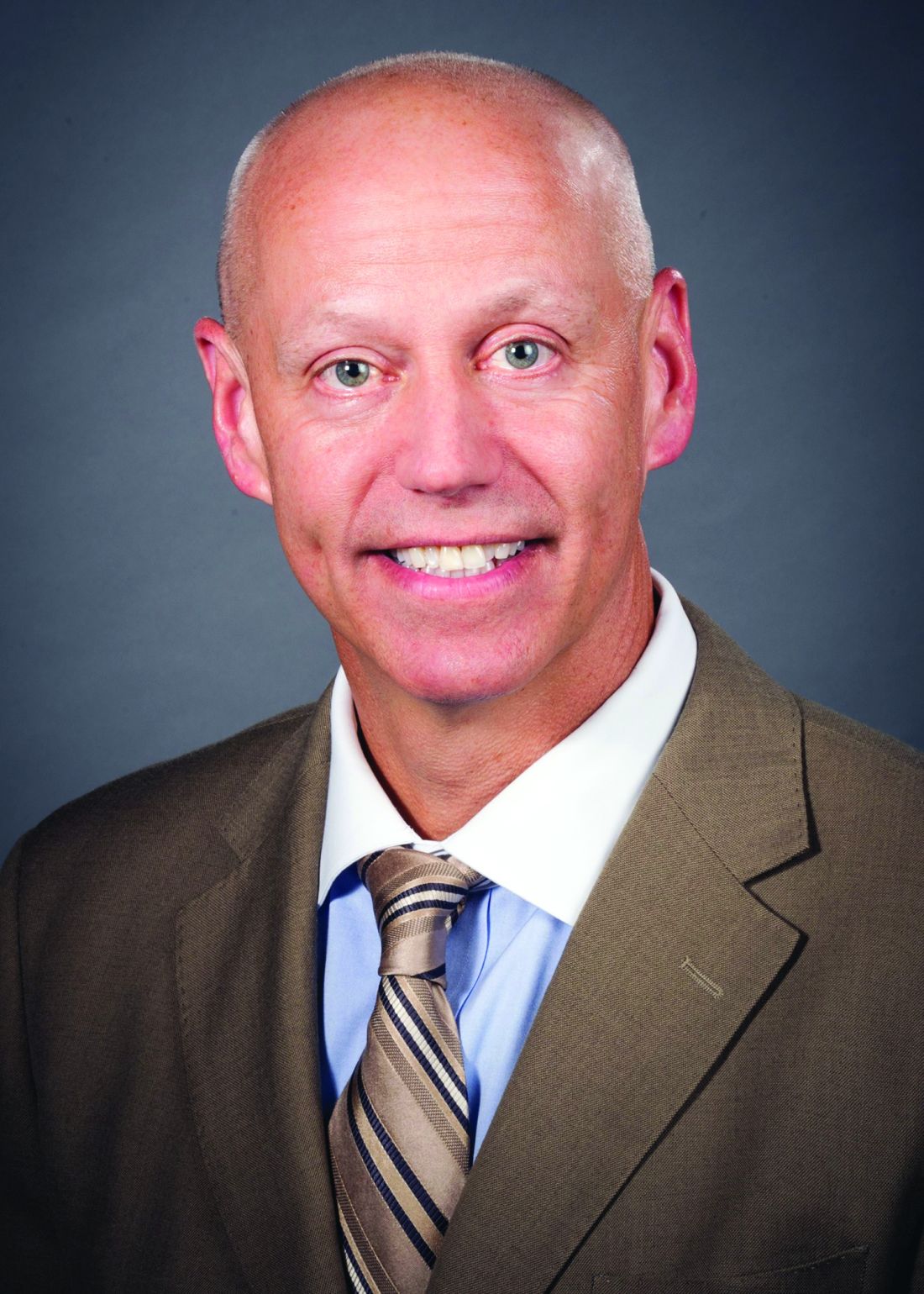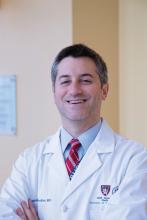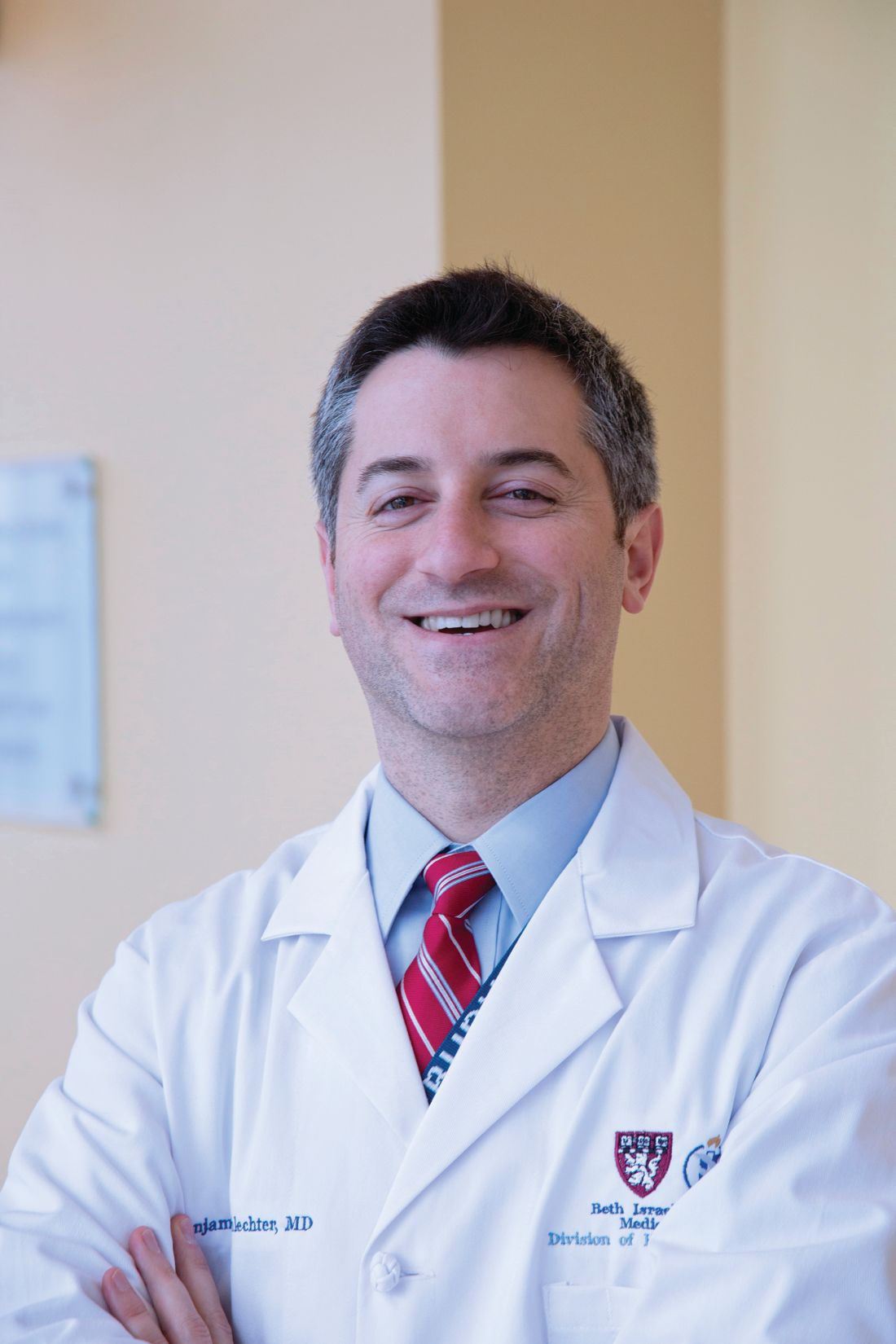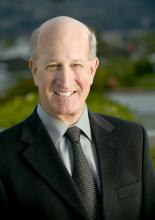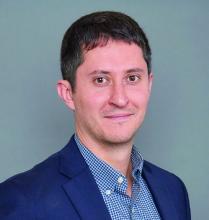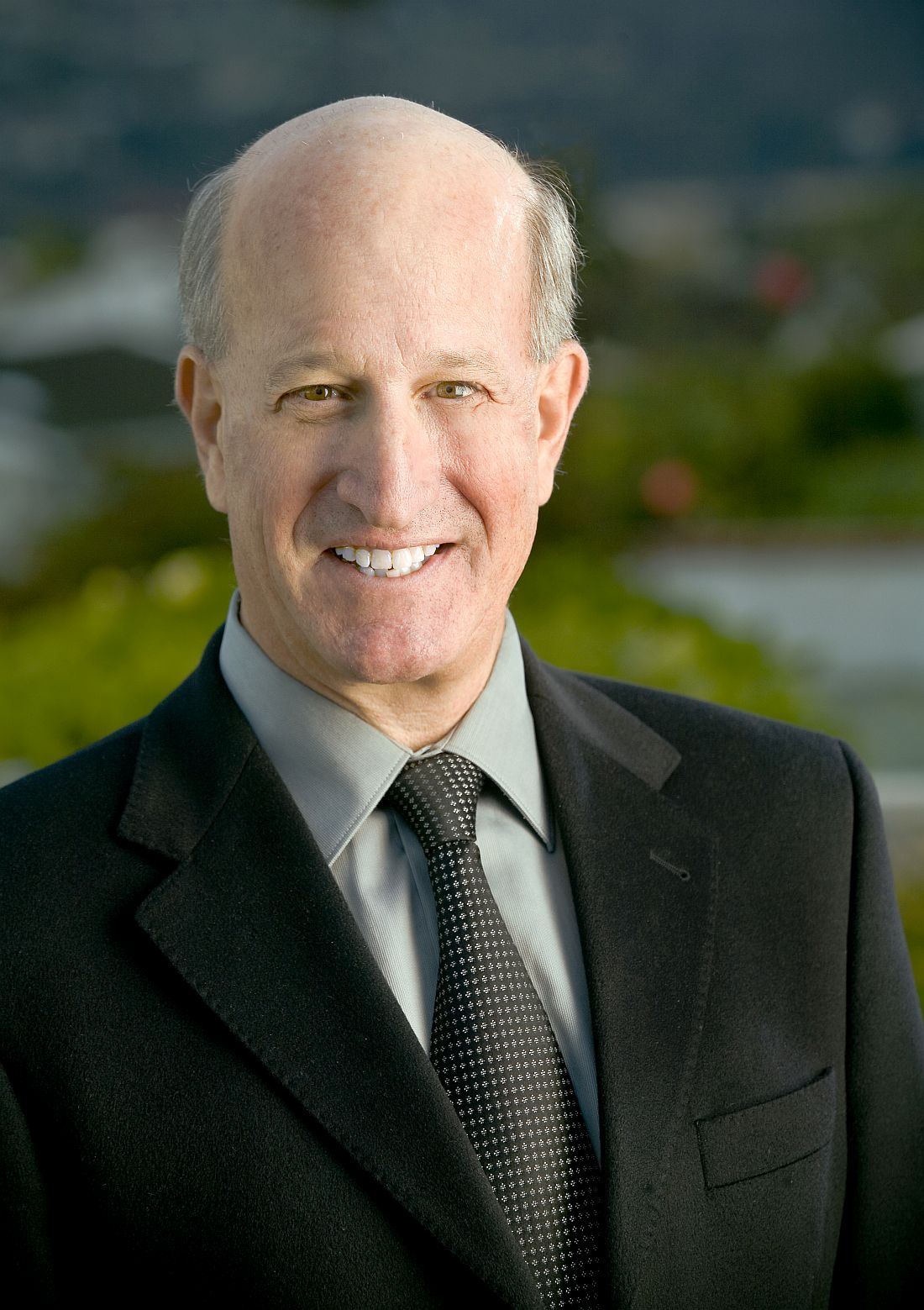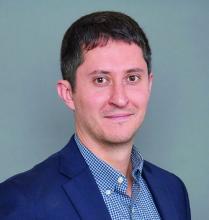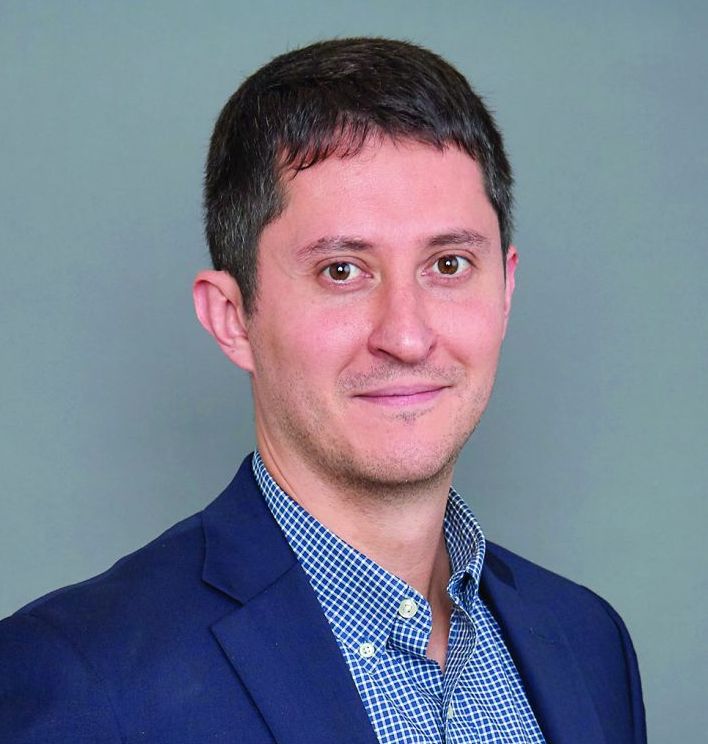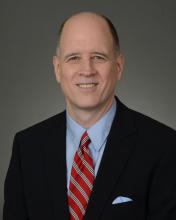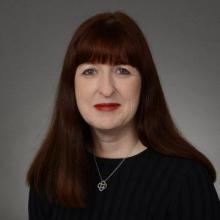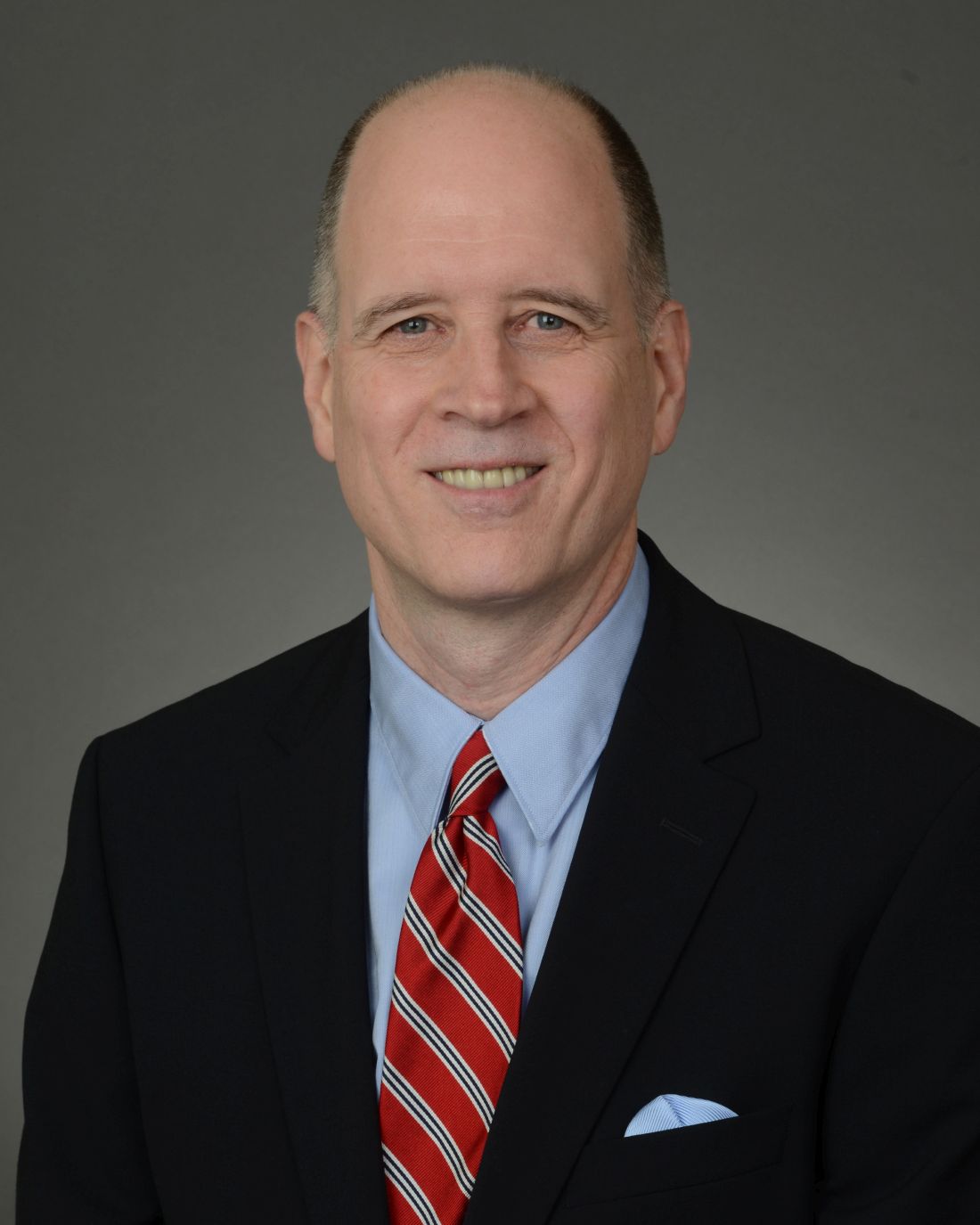User login
New for HM19: Call for content expanded to include speaker, topic proposals
The Call for Content for HM19 – open to both Society of Hospital Medicine members and nonmembers – is being expanded from solely workshop submissions to include speaker and topic proposals.
“The open call for workshops has been in place for a number of years,” said Dustin T. Smith, MD, FHM, an associate professor of medicine at Emory University in Atlanta. Dr. Smith is an HM18 assistant course director and will be the primary course director for HM19. “In the past, we used a targeted survey method to get speaker/topic suggestions for the didactic sessions. The change was made, in part, based on member and annual meeting feedback along with strong SHM leadership support and guidance.”
This change, for both workshops and sessions, will allow for more speaker diversity, as well as open the door for new presenters. “We really feel this ability to propose content and speakers will resonate with our members and nonmembers alike, giving them a voice in annual conference planning,” he continued. “Our overall goal is to create new and exciting meeting formats each year that spark interest and promote overall attendee learning.”
Dr. Smith hosted an informational presentation on the process as part of the MEDTalks session on Monday.
When asked about themes for next year’s conference, Dr. Smith stated, “I anticipate that some of the areas of focus will center around health policy, advocacy for patients, and the latest in hospital medicine.” The SHM Annual Meeting Committee is responsible for HM19’s didactic content, the foundation of which will be rooted in hot topics and subject areas in the field. Planning also will take into account momentum and feedback from HM18.
“We have a few innovative and exciting educational tracks at HM18, including The Great Debate and Seasoning Your Career. If they are successful, we hope to offer similar ones next year,” Dr. Smith explained. “Some already popular tracks such as Rapid Fire clinical topics and Clinical Updates will likely remain meeting staples, although their content will certainly change.
“I am a working member of a talented group of incredibly knowledgeable hospitalists who form the Annual Conference Committee for both HM18 and HM19. With amazing SHM leadership and staff liaison guidance and support, we will be planning content for the bulk of the educational portion of next year’s conference,” he noted.
Dr. Smith, an Atlanta native, is an academic hospitalist and assistant chief of medicine for education in the Medical Specialty Care Services Line at the Atlanta Veterans Affairs (VA) Medical Center. He graduated from Emory University in Atlanta and completed his residency at the University of California, San Francisco, with distinction.
“I was immersed in large hospital medicine programs full of terrific practicing hospitalists at both institutions,” Dr. Smith recalled. “It became apparent that, when I completed my training, I wanted to pursue an academic hospital medicine career in a large, urban setting. Being from Atlanta, I wanted to reconnect with Emory, so I accepted a position at the Atlanta VA Medical Center as a hospitalist.” (The Atlanta VA is an Emory academic affiliate.)
The recipient of numerous teaching awards, Dr. Smith is an associate program director for the J. Willis Hurst Internal Medicine Residency Program at Emory, is the chair of the Emory division of hospital medicine Education Council, and has been codirector of the annual Southern Hospital Medicine Conference since 2012. The Emory department of medicine has named him “Distinguished Physician” for his significant clinical contributions.
“I am lucky enough to have been surrounded by great mentors in hospital medicine, both during training and as early- and now mid-career faculty. Mentoring and professional development are really key elements to building a successful and sustainable career in hospital medicine,” he said. “Additionally, I am incredibly humbled and thankful to have the opportunity to care for veterans in my various clinical roles at the Atlanta VA.”
When asked about the field, Dr. Smith said, “In my opinion, hospital medicine is and has been vital for the successful operation of health care and the management of hospitalized patients for more than a decade now. Hospitalists not only provide top-notch care for inpatients but also play so many other important roles in medicine in areas such as quality improvement, practice management, comanagement, research, and education.”
The Call for Content for HM19 – open to both Society of Hospital Medicine members and nonmembers – is being expanded from solely workshop submissions to include speaker and topic proposals.
“The open call for workshops has been in place for a number of years,” said Dustin T. Smith, MD, FHM, an associate professor of medicine at Emory University in Atlanta. Dr. Smith is an HM18 assistant course director and will be the primary course director for HM19. “In the past, we used a targeted survey method to get speaker/topic suggestions for the didactic sessions. The change was made, in part, based on member and annual meeting feedback along with strong SHM leadership support and guidance.”
This change, for both workshops and sessions, will allow for more speaker diversity, as well as open the door for new presenters. “We really feel this ability to propose content and speakers will resonate with our members and nonmembers alike, giving them a voice in annual conference planning,” he continued. “Our overall goal is to create new and exciting meeting formats each year that spark interest and promote overall attendee learning.”
Dr. Smith hosted an informational presentation on the process as part of the MEDTalks session on Monday.
When asked about themes for next year’s conference, Dr. Smith stated, “I anticipate that some of the areas of focus will center around health policy, advocacy for patients, and the latest in hospital medicine.” The SHM Annual Meeting Committee is responsible for HM19’s didactic content, the foundation of which will be rooted in hot topics and subject areas in the field. Planning also will take into account momentum and feedback from HM18.
“We have a few innovative and exciting educational tracks at HM18, including The Great Debate and Seasoning Your Career. If they are successful, we hope to offer similar ones next year,” Dr. Smith explained. “Some already popular tracks such as Rapid Fire clinical topics and Clinical Updates will likely remain meeting staples, although their content will certainly change.
“I am a working member of a talented group of incredibly knowledgeable hospitalists who form the Annual Conference Committee for both HM18 and HM19. With amazing SHM leadership and staff liaison guidance and support, we will be planning content for the bulk of the educational portion of next year’s conference,” he noted.
Dr. Smith, an Atlanta native, is an academic hospitalist and assistant chief of medicine for education in the Medical Specialty Care Services Line at the Atlanta Veterans Affairs (VA) Medical Center. He graduated from Emory University in Atlanta and completed his residency at the University of California, San Francisco, with distinction.
“I was immersed in large hospital medicine programs full of terrific practicing hospitalists at both institutions,” Dr. Smith recalled. “It became apparent that, when I completed my training, I wanted to pursue an academic hospital medicine career in a large, urban setting. Being from Atlanta, I wanted to reconnect with Emory, so I accepted a position at the Atlanta VA Medical Center as a hospitalist.” (The Atlanta VA is an Emory academic affiliate.)
The recipient of numerous teaching awards, Dr. Smith is an associate program director for the J. Willis Hurst Internal Medicine Residency Program at Emory, is the chair of the Emory division of hospital medicine Education Council, and has been codirector of the annual Southern Hospital Medicine Conference since 2012. The Emory department of medicine has named him “Distinguished Physician” for his significant clinical contributions.
“I am lucky enough to have been surrounded by great mentors in hospital medicine, both during training and as early- and now mid-career faculty. Mentoring and professional development are really key elements to building a successful and sustainable career in hospital medicine,” he said. “Additionally, I am incredibly humbled and thankful to have the opportunity to care for veterans in my various clinical roles at the Atlanta VA.”
When asked about the field, Dr. Smith said, “In my opinion, hospital medicine is and has been vital for the successful operation of health care and the management of hospitalized patients for more than a decade now. Hospitalists not only provide top-notch care for inpatients but also play so many other important roles in medicine in areas such as quality improvement, practice management, comanagement, research, and education.”
The Call for Content for HM19 – open to both Society of Hospital Medicine members and nonmembers – is being expanded from solely workshop submissions to include speaker and topic proposals.
“The open call for workshops has been in place for a number of years,” said Dustin T. Smith, MD, FHM, an associate professor of medicine at Emory University in Atlanta. Dr. Smith is an HM18 assistant course director and will be the primary course director for HM19. “In the past, we used a targeted survey method to get speaker/topic suggestions for the didactic sessions. The change was made, in part, based on member and annual meeting feedback along with strong SHM leadership support and guidance.”
This change, for both workshops and sessions, will allow for more speaker diversity, as well as open the door for new presenters. “We really feel this ability to propose content and speakers will resonate with our members and nonmembers alike, giving them a voice in annual conference planning,” he continued. “Our overall goal is to create new and exciting meeting formats each year that spark interest and promote overall attendee learning.”
Dr. Smith hosted an informational presentation on the process as part of the MEDTalks session on Monday.
When asked about themes for next year’s conference, Dr. Smith stated, “I anticipate that some of the areas of focus will center around health policy, advocacy for patients, and the latest in hospital medicine.” The SHM Annual Meeting Committee is responsible for HM19’s didactic content, the foundation of which will be rooted in hot topics and subject areas in the field. Planning also will take into account momentum and feedback from HM18.
“We have a few innovative and exciting educational tracks at HM18, including The Great Debate and Seasoning Your Career. If they are successful, we hope to offer similar ones next year,” Dr. Smith explained. “Some already popular tracks such as Rapid Fire clinical topics and Clinical Updates will likely remain meeting staples, although their content will certainly change.
“I am a working member of a talented group of incredibly knowledgeable hospitalists who form the Annual Conference Committee for both HM18 and HM19. With amazing SHM leadership and staff liaison guidance and support, we will be planning content for the bulk of the educational portion of next year’s conference,” he noted.
Dr. Smith, an Atlanta native, is an academic hospitalist and assistant chief of medicine for education in the Medical Specialty Care Services Line at the Atlanta Veterans Affairs (VA) Medical Center. He graduated from Emory University in Atlanta and completed his residency at the University of California, San Francisco, with distinction.
“I was immersed in large hospital medicine programs full of terrific practicing hospitalists at both institutions,” Dr. Smith recalled. “It became apparent that, when I completed my training, I wanted to pursue an academic hospital medicine career in a large, urban setting. Being from Atlanta, I wanted to reconnect with Emory, so I accepted a position at the Atlanta VA Medical Center as a hospitalist.” (The Atlanta VA is an Emory academic affiliate.)
The recipient of numerous teaching awards, Dr. Smith is an associate program director for the J. Willis Hurst Internal Medicine Residency Program at Emory, is the chair of the Emory division of hospital medicine Education Council, and has been codirector of the annual Southern Hospital Medicine Conference since 2012. The Emory department of medicine has named him “Distinguished Physician” for his significant clinical contributions.
“I am lucky enough to have been surrounded by great mentors in hospital medicine, both during training and as early- and now mid-career faculty. Mentoring and professional development are really key elements to building a successful and sustainable career in hospital medicine,” he said. “Additionally, I am incredibly humbled and thankful to have the opportunity to care for veterans in my various clinical roles at the Atlanta VA.”
When asked about the field, Dr. Smith said, “In my opinion, hospital medicine is and has been vital for the successful operation of health care and the management of hospitalized patients for more than a decade now. Hospitalists not only provide top-notch care for inpatients but also play so many other important roles in medicine in areas such as quality improvement, practice management, comanagement, research, and education.”
Session to cover expanding HM scope of practice to pre- and posthospitalization care
As the field of hospital medicine continues to grow, it is experiencing more requests for assistance with pre- and posthospital care. These increasing demands will be the focus of today’s session “Addressing the Expanding Scope of Practice in Hospital Medicine.”
“As hospital medicine continues to advance, we are being asked to help hospitals and health care systems with challenges that extend beyond the hospital,” presenter Nick Fitterman, MD, SFHM, vice chair of hospital medicine of Northwell Health in Long Island, N.Y., explained in an interview. “Sometimes, this is a natural extension of hospital medicine; other times, it may reflect gaps in primary care or the health care system in general. Hospital medicine can be supportive, but our course must be deliberate and not extend beyond our scope of practice.
“The health care system is facing a variety of challenges, which, in turn, make an impact on hospital medicine,” stated Dr. Fitterman. “Factors that result in increased demands on the field include lack of access to posthospitalization care, high-acuity patients in subacute rehabilitation, rising health care costs, and value-based payments that include ‘bundles’ of care stretching beyond hospitalization. Finally, the nation has a population that’s aging,” he continued, “thanks to the ‘silver tsunami’ of baby boomers.”
The session will include presentations by leaders in the fields of post-acute clinics and hospitals at home. Lauren Doctoroff, MD, FHM, of Beth Israel Deaconess Medical Center in Boston will discuss post-acute care clinics; David Levine, MD, of Brigham and Women’s Hospital and Harvard Medical School, both in Boston, will cover some hospital-at-home developments; and Efren Manjarrez, MD, SFHM, of the University of Miami Health System will speak about preoperative care. Dr. Fitterman will provide examples of the expanded scope of practice issues that can arise in a large health care system.
“There are a finite number of beds in any given hospital and extending our reach into pre- or posthospitalization care is an avenue to expand our book of business, cultivate new skills, and engage patients and colleagues in new settings,” Dr. Fitterman explained. “Done with a clear vision and plan and within our scope of practice, this can be quite rewarding. Executed only to meet a demand but without proper resources, this can pose a new challenge and become frustrating.”
“HM18 participants who attend the session will receive some insights into what works and what doesn’t work regarding extrahospital care for hospital medicine,” continued Dr. Fitterman. “And we hope it will help hospital medicine practitioners and groups as they determine where to focus their efforts.”
When asked about an overall take-home message for the session, Dr. Fitterman stated, “We hospital medicine professionals must be wary of accepting every challenge posed to us to solve. This session should provide those in attendance with tools that will assist in their decision making.”
Addressing the Expanding Scope of Practice in Hospital Medicine
Wednesday, 7:30-8:30 a.m.
Grand Ballroom 7B
As the field of hospital medicine continues to grow, it is experiencing more requests for assistance with pre- and posthospital care. These increasing demands will be the focus of today’s session “Addressing the Expanding Scope of Practice in Hospital Medicine.”
“As hospital medicine continues to advance, we are being asked to help hospitals and health care systems with challenges that extend beyond the hospital,” presenter Nick Fitterman, MD, SFHM, vice chair of hospital medicine of Northwell Health in Long Island, N.Y., explained in an interview. “Sometimes, this is a natural extension of hospital medicine; other times, it may reflect gaps in primary care or the health care system in general. Hospital medicine can be supportive, but our course must be deliberate and not extend beyond our scope of practice.
“The health care system is facing a variety of challenges, which, in turn, make an impact on hospital medicine,” stated Dr. Fitterman. “Factors that result in increased demands on the field include lack of access to posthospitalization care, high-acuity patients in subacute rehabilitation, rising health care costs, and value-based payments that include ‘bundles’ of care stretching beyond hospitalization. Finally, the nation has a population that’s aging,” he continued, “thanks to the ‘silver tsunami’ of baby boomers.”
The session will include presentations by leaders in the fields of post-acute clinics and hospitals at home. Lauren Doctoroff, MD, FHM, of Beth Israel Deaconess Medical Center in Boston will discuss post-acute care clinics; David Levine, MD, of Brigham and Women’s Hospital and Harvard Medical School, both in Boston, will cover some hospital-at-home developments; and Efren Manjarrez, MD, SFHM, of the University of Miami Health System will speak about preoperative care. Dr. Fitterman will provide examples of the expanded scope of practice issues that can arise in a large health care system.
“There are a finite number of beds in any given hospital and extending our reach into pre- or posthospitalization care is an avenue to expand our book of business, cultivate new skills, and engage patients and colleagues in new settings,” Dr. Fitterman explained. “Done with a clear vision and plan and within our scope of practice, this can be quite rewarding. Executed only to meet a demand but without proper resources, this can pose a new challenge and become frustrating.”
“HM18 participants who attend the session will receive some insights into what works and what doesn’t work regarding extrahospital care for hospital medicine,” continued Dr. Fitterman. “And we hope it will help hospital medicine practitioners and groups as they determine where to focus their efforts.”
When asked about an overall take-home message for the session, Dr. Fitterman stated, “We hospital medicine professionals must be wary of accepting every challenge posed to us to solve. This session should provide those in attendance with tools that will assist in their decision making.”
Addressing the Expanding Scope of Practice in Hospital Medicine
Wednesday, 7:30-8:30 a.m.
Grand Ballroom 7B
As the field of hospital medicine continues to grow, it is experiencing more requests for assistance with pre- and posthospital care. These increasing demands will be the focus of today’s session “Addressing the Expanding Scope of Practice in Hospital Medicine.”
“As hospital medicine continues to advance, we are being asked to help hospitals and health care systems with challenges that extend beyond the hospital,” presenter Nick Fitterman, MD, SFHM, vice chair of hospital medicine of Northwell Health in Long Island, N.Y., explained in an interview. “Sometimes, this is a natural extension of hospital medicine; other times, it may reflect gaps in primary care or the health care system in general. Hospital medicine can be supportive, but our course must be deliberate and not extend beyond our scope of practice.
“The health care system is facing a variety of challenges, which, in turn, make an impact on hospital medicine,” stated Dr. Fitterman. “Factors that result in increased demands on the field include lack of access to posthospitalization care, high-acuity patients in subacute rehabilitation, rising health care costs, and value-based payments that include ‘bundles’ of care stretching beyond hospitalization. Finally, the nation has a population that’s aging,” he continued, “thanks to the ‘silver tsunami’ of baby boomers.”
The session will include presentations by leaders in the fields of post-acute clinics and hospitals at home. Lauren Doctoroff, MD, FHM, of Beth Israel Deaconess Medical Center in Boston will discuss post-acute care clinics; David Levine, MD, of Brigham and Women’s Hospital and Harvard Medical School, both in Boston, will cover some hospital-at-home developments; and Efren Manjarrez, MD, SFHM, of the University of Miami Health System will speak about preoperative care. Dr. Fitterman will provide examples of the expanded scope of practice issues that can arise in a large health care system.
“There are a finite number of beds in any given hospital and extending our reach into pre- or posthospitalization care is an avenue to expand our book of business, cultivate new skills, and engage patients and colleagues in new settings,” Dr. Fitterman explained. “Done with a clear vision and plan and within our scope of practice, this can be quite rewarding. Executed only to meet a demand but without proper resources, this can pose a new challenge and become frustrating.”
“HM18 participants who attend the session will receive some insights into what works and what doesn’t work regarding extrahospital care for hospital medicine,” continued Dr. Fitterman. “And we hope it will help hospital medicine practitioners and groups as they determine where to focus their efforts.”
When asked about an overall take-home message for the session, Dr. Fitterman stated, “We hospital medicine professionals must be wary of accepting every challenge posed to us to solve. This session should provide those in attendance with tools that will assist in their decision making.”
Addressing the Expanding Scope of Practice in Hospital Medicine
Wednesday, 7:30-8:30 a.m.
Grand Ballroom 7B
Session tackles oncology emergencies
Hospitalists are on the front lines of diagnosis and management of patients with cancer, the second-leading cause of death in the United States. The session on Oncology Emergencies addressed the enormous number of clinical issues that must be considered within this patient population.
“The real challenge in managing sick cancer patients lies in the data-free zones,” presenter Benjamin L. Schlechter, MD, of Beth Israel Deaconess Medical Center in Boston, said in an interview. “I think the oncologic emergency we forget to talk about most often is the early diagnostic period,” he noted. The focus of Dr. Schlechter’s Monday talk was on this time frame and the process of getting patients with an advanced malignancy from diagnosis to treatment safely, which remains a clinical challenge.
“These patients often present with vague symptoms that do not point to any particular diagnosis,” stated Dr. Schlechter. “Once we identify that a patient has a symptomatic new malignancy, it is critical to determine who needs a rapid work-up as an inpatient on a hospital medicine service and who can be managed as an outpatient.”
Dr. Schlechter explained that there are no randomized trials to guide diagnostic work-up of malignancy or even define an expedited work-up. On the other hand, there are extensive data on treatment of newly diagnosed cancers. Clinical trials that guide first-line cancer therapy have clear eligibility criteria, which should inform hospitalists’ work-ups. “These include torso imaging, biopsy of a metastatic site, and assessment of liver and kidney function,” Dr. Schlechter continued. “The reason kidney and liver function are so critical is that patients who have organ dysfunction cannot receive effective chemotherapy.”
During the presentation, Dr. Schlechter reminded attendees that two-thirds of all cancers are cured, and there are clear data showing that chemotherapy in the first-line setting improves quality and length of life in virtually all cases. He underscored how critical it is to get patients treated before they develop organ dysfunction. “We can also use fairly basic clinical and laboratory assessment to determine who has a hyperaggressive malignancy and who doesn’t,” he added. “If LDH [lactate dehydrogenase] or uric acid are elevated, something really dangerous is happening. If the transaminases and alkaline phosphatase are rising, liver function is in danger. If the kidneys are failing, we need to act quickly.”
Dr. Schlechter closed by saying, “There are huge challenges in studying this time frame in a patient’s illness, which is why the initial work-up of cancer remains a high-risk period.”
Hospitalists are on the front lines of diagnosis and management of patients with cancer, the second-leading cause of death in the United States. The session on Oncology Emergencies addressed the enormous number of clinical issues that must be considered within this patient population.
“The real challenge in managing sick cancer patients lies in the data-free zones,” presenter Benjamin L. Schlechter, MD, of Beth Israel Deaconess Medical Center in Boston, said in an interview. “I think the oncologic emergency we forget to talk about most often is the early diagnostic period,” he noted. The focus of Dr. Schlechter’s Monday talk was on this time frame and the process of getting patients with an advanced malignancy from diagnosis to treatment safely, which remains a clinical challenge.
“These patients often present with vague symptoms that do not point to any particular diagnosis,” stated Dr. Schlechter. “Once we identify that a patient has a symptomatic new malignancy, it is critical to determine who needs a rapid work-up as an inpatient on a hospital medicine service and who can be managed as an outpatient.”
Dr. Schlechter explained that there are no randomized trials to guide diagnostic work-up of malignancy or even define an expedited work-up. On the other hand, there are extensive data on treatment of newly diagnosed cancers. Clinical trials that guide first-line cancer therapy have clear eligibility criteria, which should inform hospitalists’ work-ups. “These include torso imaging, biopsy of a metastatic site, and assessment of liver and kidney function,” Dr. Schlechter continued. “The reason kidney and liver function are so critical is that patients who have organ dysfunction cannot receive effective chemotherapy.”
During the presentation, Dr. Schlechter reminded attendees that two-thirds of all cancers are cured, and there are clear data showing that chemotherapy in the first-line setting improves quality and length of life in virtually all cases. He underscored how critical it is to get patients treated before they develop organ dysfunction. “We can also use fairly basic clinical and laboratory assessment to determine who has a hyperaggressive malignancy and who doesn’t,” he added. “If LDH [lactate dehydrogenase] or uric acid are elevated, something really dangerous is happening. If the transaminases and alkaline phosphatase are rising, liver function is in danger. If the kidneys are failing, we need to act quickly.”
Dr. Schlechter closed by saying, “There are huge challenges in studying this time frame in a patient’s illness, which is why the initial work-up of cancer remains a high-risk period.”
Hospitalists are on the front lines of diagnosis and management of patients with cancer, the second-leading cause of death in the United States. The session on Oncology Emergencies addressed the enormous number of clinical issues that must be considered within this patient population.
“The real challenge in managing sick cancer patients lies in the data-free zones,” presenter Benjamin L. Schlechter, MD, of Beth Israel Deaconess Medical Center in Boston, said in an interview. “I think the oncologic emergency we forget to talk about most often is the early diagnostic period,” he noted. The focus of Dr. Schlechter’s Monday talk was on this time frame and the process of getting patients with an advanced malignancy from diagnosis to treatment safely, which remains a clinical challenge.
“These patients often present with vague symptoms that do not point to any particular diagnosis,” stated Dr. Schlechter. “Once we identify that a patient has a symptomatic new malignancy, it is critical to determine who needs a rapid work-up as an inpatient on a hospital medicine service and who can be managed as an outpatient.”
Dr. Schlechter explained that there are no randomized trials to guide diagnostic work-up of malignancy or even define an expedited work-up. On the other hand, there are extensive data on treatment of newly diagnosed cancers. Clinical trials that guide first-line cancer therapy have clear eligibility criteria, which should inform hospitalists’ work-ups. “These include torso imaging, biopsy of a metastatic site, and assessment of liver and kidney function,” Dr. Schlechter continued. “The reason kidney and liver function are so critical is that patients who have organ dysfunction cannot receive effective chemotherapy.”
During the presentation, Dr. Schlechter reminded attendees that two-thirds of all cancers are cured, and there are clear data showing that chemotherapy in the first-line setting improves quality and length of life in virtually all cases. He underscored how critical it is to get patients treated before they develop organ dysfunction. “We can also use fairly basic clinical and laboratory assessment to determine who has a hyperaggressive malignancy and who doesn’t,” he added. “If LDH [lactate dehydrogenase] or uric acid are elevated, something really dangerous is happening. If the transaminases and alkaline phosphatase are rising, liver function is in danger. If the kidneys are failing, we need to act quickly.”
Dr. Schlechter closed by saying, “There are huge challenges in studying this time frame in a patient’s illness, which is why the initial work-up of cancer remains a high-risk period.”
Hospital Medicine in Japan slated as one of several internationally focused events at HM18
The work of the Japanese Society of Hospital General Medicine – the foremost membership organization supporting hospitalists in Japan – will be the focus of “Hospital Medicine in Japan” on Tuesday from 12:45-1:30 p.m. in Grand Ballroom 12-14.
“Hospital Medicine is being adopted and spread around the world,” stated Larry Wellikson, MD, MHM, the CEO of SHM. “We have invited the leaders of the Japanese Society of Hospital General Medicine to come to HM18 to give our attendees the inside story on how hospital medicine is changing the management of acutely ill patients in Japan.
The Japanese society held its 15th annual conference in September 2017. SHM was represented on the faculty by outgoing Board President Ron Greeno, MD, MHM.
Hospital Medicine in Japan will be led by three prominent Japanese hospitalists: Jun Hayashi, MD, PhD, of Kyushu University Hospital in Fukuoka; Toshio Naito, MD, PhD, of Juntendo University in Tokyo; and Susumu Tazuma, MD, PhD, of Hiroshima University Hospital. Dr. Naito is also president of the Japanese Society.
“For the past several years, SHM has taken a more deliberate approach to cultivating international relationships,” said Ethan Gray, CAE, vice president of SHM membership.
“Similar to the factors that influence hospital medicine implementation in general, SHM’s role around the world will need to be nuanced,” he said. “The society is taking cues from leaders on the ground to determine how we can be supportive.”
Currently, SHM has four official international affiliations in various stages of development:
- Canada – Founded as an SHM chapter in 2001, the Canadian Society of Hospital Medicine is the leading hospitalist membership society in Canada and hosts regular educational conferences that include SHM leaders as faculty.
- Brazil – Hospitalists began organizing in 2006, creating the foundation for the launch of an official SHM chapter in 2016. SHM provides faculty for both on-site conferences in Brazil and webinars.
- The Middle East – An official chapter was initiated in 2016 with leadership from Qatar, Saudi Arabia, and the United Arab Emirates. SHM faculty has participated in its regional educational sessions.
- The Netherlands – A government-funded pilot program has been training hospitalists in the Netherlands since 2012. Its official SHM chapter was founded in 2017. As the government reviews the training program pilot, SHM may help chapter leaders to define hospital medicine’s role in the Dutch health system.
“In addition to these official associations, SHM is cultivating relationships with other international organizations serving the hospital medicine community,” Mr. Gray stated. “This includes interactions with the Japanese Society, as well as the Society for Acute Medicine in the United Kingdom.”
Preliminary conversations have taken place with leaders in several other countries about establishing SHM chapters, he said, including Argentina, India, Panama, Portugal, Singapore, Slovakia, South Korea, and Spain. Discussions also include potential delivery of resources to providers and establishment of a venue for research sharing and networking.
As SHM expands its international activities, it is dedicating staff resources to international chapter development, including the facilitation of virtual communities on its Hospital Medical Exchange (HMX).
“Our goal,” Mr. Gray said, “is to learn from one another.”
Hospital Medicine in Japan
Tuesday, 12:45-1:30 p.m.
Grand Ballroom 12-14
The work of the Japanese Society of Hospital General Medicine – the foremost membership organization supporting hospitalists in Japan – will be the focus of “Hospital Medicine in Japan” on Tuesday from 12:45-1:30 p.m. in Grand Ballroom 12-14.
“Hospital Medicine is being adopted and spread around the world,” stated Larry Wellikson, MD, MHM, the CEO of SHM. “We have invited the leaders of the Japanese Society of Hospital General Medicine to come to HM18 to give our attendees the inside story on how hospital medicine is changing the management of acutely ill patients in Japan.
The Japanese society held its 15th annual conference in September 2017. SHM was represented on the faculty by outgoing Board President Ron Greeno, MD, MHM.
Hospital Medicine in Japan will be led by three prominent Japanese hospitalists: Jun Hayashi, MD, PhD, of Kyushu University Hospital in Fukuoka; Toshio Naito, MD, PhD, of Juntendo University in Tokyo; and Susumu Tazuma, MD, PhD, of Hiroshima University Hospital. Dr. Naito is also president of the Japanese Society.
“For the past several years, SHM has taken a more deliberate approach to cultivating international relationships,” said Ethan Gray, CAE, vice president of SHM membership.
“Similar to the factors that influence hospital medicine implementation in general, SHM’s role around the world will need to be nuanced,” he said. “The society is taking cues from leaders on the ground to determine how we can be supportive.”
Currently, SHM has four official international affiliations in various stages of development:
- Canada – Founded as an SHM chapter in 2001, the Canadian Society of Hospital Medicine is the leading hospitalist membership society in Canada and hosts regular educational conferences that include SHM leaders as faculty.
- Brazil – Hospitalists began organizing in 2006, creating the foundation for the launch of an official SHM chapter in 2016. SHM provides faculty for both on-site conferences in Brazil and webinars.
- The Middle East – An official chapter was initiated in 2016 with leadership from Qatar, Saudi Arabia, and the United Arab Emirates. SHM faculty has participated in its regional educational sessions.
- The Netherlands – A government-funded pilot program has been training hospitalists in the Netherlands since 2012. Its official SHM chapter was founded in 2017. As the government reviews the training program pilot, SHM may help chapter leaders to define hospital medicine’s role in the Dutch health system.
“In addition to these official associations, SHM is cultivating relationships with other international organizations serving the hospital medicine community,” Mr. Gray stated. “This includes interactions with the Japanese Society, as well as the Society for Acute Medicine in the United Kingdom.”
Preliminary conversations have taken place with leaders in several other countries about establishing SHM chapters, he said, including Argentina, India, Panama, Portugal, Singapore, Slovakia, South Korea, and Spain. Discussions also include potential delivery of resources to providers and establishment of a venue for research sharing and networking.
As SHM expands its international activities, it is dedicating staff resources to international chapter development, including the facilitation of virtual communities on its Hospital Medical Exchange (HMX).
“Our goal,” Mr. Gray said, “is to learn from one another.”
Hospital Medicine in Japan
Tuesday, 12:45-1:30 p.m.
Grand Ballroom 12-14
The work of the Japanese Society of Hospital General Medicine – the foremost membership organization supporting hospitalists in Japan – will be the focus of “Hospital Medicine in Japan” on Tuesday from 12:45-1:30 p.m. in Grand Ballroom 12-14.
“Hospital Medicine is being adopted and spread around the world,” stated Larry Wellikson, MD, MHM, the CEO of SHM. “We have invited the leaders of the Japanese Society of Hospital General Medicine to come to HM18 to give our attendees the inside story on how hospital medicine is changing the management of acutely ill patients in Japan.
The Japanese society held its 15th annual conference in September 2017. SHM was represented on the faculty by outgoing Board President Ron Greeno, MD, MHM.
Hospital Medicine in Japan will be led by three prominent Japanese hospitalists: Jun Hayashi, MD, PhD, of Kyushu University Hospital in Fukuoka; Toshio Naito, MD, PhD, of Juntendo University in Tokyo; and Susumu Tazuma, MD, PhD, of Hiroshima University Hospital. Dr. Naito is also president of the Japanese Society.
“For the past several years, SHM has taken a more deliberate approach to cultivating international relationships,” said Ethan Gray, CAE, vice president of SHM membership.
“Similar to the factors that influence hospital medicine implementation in general, SHM’s role around the world will need to be nuanced,” he said. “The society is taking cues from leaders on the ground to determine how we can be supportive.”
Currently, SHM has four official international affiliations in various stages of development:
- Canada – Founded as an SHM chapter in 2001, the Canadian Society of Hospital Medicine is the leading hospitalist membership society in Canada and hosts regular educational conferences that include SHM leaders as faculty.
- Brazil – Hospitalists began organizing in 2006, creating the foundation for the launch of an official SHM chapter in 2016. SHM provides faculty for both on-site conferences in Brazil and webinars.
- The Middle East – An official chapter was initiated in 2016 with leadership from Qatar, Saudi Arabia, and the United Arab Emirates. SHM faculty has participated in its regional educational sessions.
- The Netherlands – A government-funded pilot program has been training hospitalists in the Netherlands since 2012. Its official SHM chapter was founded in 2017. As the government reviews the training program pilot, SHM may help chapter leaders to define hospital medicine’s role in the Dutch health system.
“In addition to these official associations, SHM is cultivating relationships with other international organizations serving the hospital medicine community,” Mr. Gray stated. “This includes interactions with the Japanese Society, as well as the Society for Acute Medicine in the United Kingdom.”
Preliminary conversations have taken place with leaders in several other countries about establishing SHM chapters, he said, including Argentina, India, Panama, Portugal, Singapore, Slovakia, South Korea, and Spain. Discussions also include potential delivery of resources to providers and establishment of a venue for research sharing and networking.
As SHM expands its international activities, it is dedicating staff resources to international chapter development, including the facilitation of virtual communities on its Hospital Medical Exchange (HMX).
“Our goal,” Mr. Gray said, “is to learn from one another.”
Hospital Medicine in Japan
Tuesday, 12:45-1:30 p.m.
Grand Ballroom 12-14
Global attendees: Visit the International Lounge
Over the past several years, the Society of Hospital Medicine has become more involved in developing global relationships in an attempt to become a resource for hospital medicine movements in other countries. As part of this initiative, HM18 will host an International Lounge on Tuesday, April 10, from 10 a.m. to 3 p.m. in the Anaheim Room at the Orlando Marriott World Center.
“SHM has been taking a more deliberate approach to cultivating international relationships,” said Ethan Gray, CAE, vice president of membership for the society. “Although we are still in the beginning phases of establishing a global footprint that will provide enduring resources that respond to the needs of international members similar to those we provide to our U.S. members, we are making efforts toward that end.”
The International Lounge at HM18 is one such effort. Its purpose is to provide worldwide attendees with enhanced networking opportunities, information on how to launch an SHM chapter, and the opportunity to interact with SHM staff and board leaders.
“On Monday, HM18 will be hosting an International Special Interest Forum, which will allow global participants to share their experiences and interact with thought leaders from the United States and abroad, including SHM board members,” continued Mr. Gray. “The International Lounge is an extension of our global outreach at the annual meeting.”
The International Lounge will offer informal networking. As the SHM staff liaison, Mr. Gray will be on hand to answer any questions from and interact with global attendees. SHM board members also will be available on a rotating schedule throughout the day to network, dialogue, and share their knowledge and expertise.
As SHM expands its international activities, it is dedicating staff resources at its Philadelphia headquarters to international chapter development, including facilitating virtual communities on its Hospital Medical Exchange (HMX).
“Those visiting the lounge will be able to pick up a written fact sheet on the elements needed to create an SHM chapter,” stated Mr. Gray. “And, I will be available to discuss chapter launch requisites and any other questions they might have.”
Items covered in the fact sheet will include criteria for establishing an SHM international chapter, definition of a potential chapter’s geographic area, and the requirements for demonstrating necessary interest and leadership at the local level. It also will describe the SHM resources that will be available to international chapters – dedicated staff and physician leader liaisons, data support and management, creation of a chapter-specific HMX community to facilitate virtual networking and communications, meeting support, and counsel on how to build and maintain chapter audience and membership.
In addition, the lounge will have a global map that identifies geographic concentrations of international attendees and photos from recent international chapter meetings.
SHM has been surveying the field beyond U.S. borders through the initiation of conversations with organizations abroad. These efforts allow the society to learn from and support hospital medicine leaders and health systems around the world.
“The hospital medicine movement is in various stages of development outside the United States,” explained Mr. Gray. “Many factors influence the rate at which a hospital medicine model can become implemented, including the structure of the health system, education and training curricula, existing scope of practice and care-delivery constructs, fluidity of government and systems, and other factors.
“We urge participants from abroad to visit the International Lounge to meet and share information with their counterparts from other countries, learn more about SHM and what it has to offer, find out about the potential for launching an SHM chapter, and interact with SHM staff and board members,” concluded Mr. Gray. “We have so much to learn from each other.”
International Lounge
Tuesday, April 10, 10 a.m.-3 p.m.
Anaheim Room
Over the past several years, the Society of Hospital Medicine has become more involved in developing global relationships in an attempt to become a resource for hospital medicine movements in other countries. As part of this initiative, HM18 will host an International Lounge on Tuesday, April 10, from 10 a.m. to 3 p.m. in the Anaheim Room at the Orlando Marriott World Center.
“SHM has been taking a more deliberate approach to cultivating international relationships,” said Ethan Gray, CAE, vice president of membership for the society. “Although we are still in the beginning phases of establishing a global footprint that will provide enduring resources that respond to the needs of international members similar to those we provide to our U.S. members, we are making efforts toward that end.”
The International Lounge at HM18 is one such effort. Its purpose is to provide worldwide attendees with enhanced networking opportunities, information on how to launch an SHM chapter, and the opportunity to interact with SHM staff and board leaders.
“On Monday, HM18 will be hosting an International Special Interest Forum, which will allow global participants to share their experiences and interact with thought leaders from the United States and abroad, including SHM board members,” continued Mr. Gray. “The International Lounge is an extension of our global outreach at the annual meeting.”
The International Lounge will offer informal networking. As the SHM staff liaison, Mr. Gray will be on hand to answer any questions from and interact with global attendees. SHM board members also will be available on a rotating schedule throughout the day to network, dialogue, and share their knowledge and expertise.
As SHM expands its international activities, it is dedicating staff resources at its Philadelphia headquarters to international chapter development, including facilitating virtual communities on its Hospital Medical Exchange (HMX).
“Those visiting the lounge will be able to pick up a written fact sheet on the elements needed to create an SHM chapter,” stated Mr. Gray. “And, I will be available to discuss chapter launch requisites and any other questions they might have.”
Items covered in the fact sheet will include criteria for establishing an SHM international chapter, definition of a potential chapter’s geographic area, and the requirements for demonstrating necessary interest and leadership at the local level. It also will describe the SHM resources that will be available to international chapters – dedicated staff and physician leader liaisons, data support and management, creation of a chapter-specific HMX community to facilitate virtual networking and communications, meeting support, and counsel on how to build and maintain chapter audience and membership.
In addition, the lounge will have a global map that identifies geographic concentrations of international attendees and photos from recent international chapter meetings.
SHM has been surveying the field beyond U.S. borders through the initiation of conversations with organizations abroad. These efforts allow the society to learn from and support hospital medicine leaders and health systems around the world.
“The hospital medicine movement is in various stages of development outside the United States,” explained Mr. Gray. “Many factors influence the rate at which a hospital medicine model can become implemented, including the structure of the health system, education and training curricula, existing scope of practice and care-delivery constructs, fluidity of government and systems, and other factors.
“We urge participants from abroad to visit the International Lounge to meet and share information with their counterparts from other countries, learn more about SHM and what it has to offer, find out about the potential for launching an SHM chapter, and interact with SHM staff and board members,” concluded Mr. Gray. “We have so much to learn from each other.”
International Lounge
Tuesday, April 10, 10 a.m.-3 p.m.
Anaheim Room
Over the past several years, the Society of Hospital Medicine has become more involved in developing global relationships in an attempt to become a resource for hospital medicine movements in other countries. As part of this initiative, HM18 will host an International Lounge on Tuesday, April 10, from 10 a.m. to 3 p.m. in the Anaheim Room at the Orlando Marriott World Center.
“SHM has been taking a more deliberate approach to cultivating international relationships,” said Ethan Gray, CAE, vice president of membership for the society. “Although we are still in the beginning phases of establishing a global footprint that will provide enduring resources that respond to the needs of international members similar to those we provide to our U.S. members, we are making efforts toward that end.”
The International Lounge at HM18 is one such effort. Its purpose is to provide worldwide attendees with enhanced networking opportunities, information on how to launch an SHM chapter, and the opportunity to interact with SHM staff and board leaders.
“On Monday, HM18 will be hosting an International Special Interest Forum, which will allow global participants to share their experiences and interact with thought leaders from the United States and abroad, including SHM board members,” continued Mr. Gray. “The International Lounge is an extension of our global outreach at the annual meeting.”
The International Lounge will offer informal networking. As the SHM staff liaison, Mr. Gray will be on hand to answer any questions from and interact with global attendees. SHM board members also will be available on a rotating schedule throughout the day to network, dialogue, and share their knowledge and expertise.
As SHM expands its international activities, it is dedicating staff resources at its Philadelphia headquarters to international chapter development, including facilitating virtual communities on its Hospital Medical Exchange (HMX).
“Those visiting the lounge will be able to pick up a written fact sheet on the elements needed to create an SHM chapter,” stated Mr. Gray. “And, I will be available to discuss chapter launch requisites and any other questions they might have.”
Items covered in the fact sheet will include criteria for establishing an SHM international chapter, definition of a potential chapter’s geographic area, and the requirements for demonstrating necessary interest and leadership at the local level. It also will describe the SHM resources that will be available to international chapters – dedicated staff and physician leader liaisons, data support and management, creation of a chapter-specific HMX community to facilitate virtual networking and communications, meeting support, and counsel on how to build and maintain chapter audience and membership.
In addition, the lounge will have a global map that identifies geographic concentrations of international attendees and photos from recent international chapter meetings.
SHM has been surveying the field beyond U.S. borders through the initiation of conversations with organizations abroad. These efforts allow the society to learn from and support hospital medicine leaders and health systems around the world.
“The hospital medicine movement is in various stages of development outside the United States,” explained Mr. Gray. “Many factors influence the rate at which a hospital medicine model can become implemented, including the structure of the health system, education and training curricula, existing scope of practice and care-delivery constructs, fluidity of government and systems, and other factors.
“We urge participants from abroad to visit the International Lounge to meet and share information with their counterparts from other countries, learn more about SHM and what it has to offer, find out about the potential for launching an SHM chapter, and interact with SHM staff and board members,” concluded Mr. Gray. “We have so much to learn from each other.”
International Lounge
Tuesday, April 10, 10 a.m.-3 p.m.
Anaheim Room
ID ‘boot camp’ emphasizes practice pearls
An intensive, day-long precourse on infectious diseases will return to the SHM annual meeting program for the first time in several years.
“Bugs, Drugs, and You: Infectious Diseases ‘Boot Camp’ for Hospitalists” will focus on a range of important clinical issues, including infectious diseases that appear with frequency and the high-stakes nature of which require correct diagnosis and treatment.
Cochair Jennifer Hanrahan, DO, also of MetroHealth Medical Center, agreed, noting that hospitalists must be able to recognize infectious disease emergencies and have some familiarity with HIV as it presents in hospitalized patients.
“We want [attendees] to think about which tests to order and when to stop antibiotic therapy,” she said.
The faculty includes infectious diseases specialists with extensive teaching backgrounds. Several are practicing hospitalists. John Sanders, MD, MPH, of Wake Forest University, Winston-Salem, N.C., and Glenn Wortmann, MD, of MedStar Washington Hospital Center will join Dr. Hanrahan and Dr. Pile as faculty members.
The precourse has five objectives:
- Describe best practices in skin and soft tissue infection treatment based on current guidelines and recently approved antimicrobial agents.
- Outline optimal strategies for prevention and treatment of Clostridium difficile, including disease recurrences.
- Identify key strategies for prevention of selected infections and discuss resistance issues impacting antimicrobial use.
- Focus on prompt recognition and treatment of certain infectious disease emergencies.
- Cover significant trends in endocarditis and other endovascular infections and their impact on treatment approaches.
When the infectious disease precourse was last presented, it received highly positive evaluations. “We believe that this new, improved iteration will be better than ever,” Dr. Pile said. “It will be well worth attendees’ time and money, providing them with renewed confidence in their ability to manage common and less common infectious diseases. They will be able to return to their practices armed with new strategies that they can immediately put to use.”
Bugs, Drugs, and You: Infectious Diseases “Boot Camp” for Hospitalists
Monday, May 1, 8:15 a.m.–4:30 p.m.
An intensive, day-long precourse on infectious diseases will return to the SHM annual meeting program for the first time in several years.
“Bugs, Drugs, and You: Infectious Diseases ‘Boot Camp’ for Hospitalists” will focus on a range of important clinical issues, including infectious diseases that appear with frequency and the high-stakes nature of which require correct diagnosis and treatment.
Cochair Jennifer Hanrahan, DO, also of MetroHealth Medical Center, agreed, noting that hospitalists must be able to recognize infectious disease emergencies and have some familiarity with HIV as it presents in hospitalized patients.
“We want [attendees] to think about which tests to order and when to stop antibiotic therapy,” she said.
The faculty includes infectious diseases specialists with extensive teaching backgrounds. Several are practicing hospitalists. John Sanders, MD, MPH, of Wake Forest University, Winston-Salem, N.C., and Glenn Wortmann, MD, of MedStar Washington Hospital Center will join Dr. Hanrahan and Dr. Pile as faculty members.
The precourse has five objectives:
- Describe best practices in skin and soft tissue infection treatment based on current guidelines and recently approved antimicrobial agents.
- Outline optimal strategies for prevention and treatment of Clostridium difficile, including disease recurrences.
- Identify key strategies for prevention of selected infections and discuss resistance issues impacting antimicrobial use.
- Focus on prompt recognition and treatment of certain infectious disease emergencies.
- Cover significant trends in endocarditis and other endovascular infections and their impact on treatment approaches.
When the infectious disease precourse was last presented, it received highly positive evaluations. “We believe that this new, improved iteration will be better than ever,” Dr. Pile said. “It will be well worth attendees’ time and money, providing them with renewed confidence in their ability to manage common and less common infectious diseases. They will be able to return to their practices armed with new strategies that they can immediately put to use.”
Bugs, Drugs, and You: Infectious Diseases “Boot Camp” for Hospitalists
Monday, May 1, 8:15 a.m.–4:30 p.m.
An intensive, day-long precourse on infectious diseases will return to the SHM annual meeting program for the first time in several years.
“Bugs, Drugs, and You: Infectious Diseases ‘Boot Camp’ for Hospitalists” will focus on a range of important clinical issues, including infectious diseases that appear with frequency and the high-stakes nature of which require correct diagnosis and treatment.
Cochair Jennifer Hanrahan, DO, also of MetroHealth Medical Center, agreed, noting that hospitalists must be able to recognize infectious disease emergencies and have some familiarity with HIV as it presents in hospitalized patients.
“We want [attendees] to think about which tests to order and when to stop antibiotic therapy,” she said.
The faculty includes infectious diseases specialists with extensive teaching backgrounds. Several are practicing hospitalists. John Sanders, MD, MPH, of Wake Forest University, Winston-Salem, N.C., and Glenn Wortmann, MD, of MedStar Washington Hospital Center will join Dr. Hanrahan and Dr. Pile as faculty members.
The precourse has five objectives:
- Describe best practices in skin and soft tissue infection treatment based on current guidelines and recently approved antimicrobial agents.
- Outline optimal strategies for prevention and treatment of Clostridium difficile, including disease recurrences.
- Identify key strategies for prevention of selected infections and discuss resistance issues impacting antimicrobial use.
- Focus on prompt recognition and treatment of certain infectious disease emergencies.
- Cover significant trends in endocarditis and other endovascular infections and their impact on treatment approaches.
When the infectious disease precourse was last presented, it received highly positive evaluations. “We believe that this new, improved iteration will be better than ever,” Dr. Pile said. “It will be well worth attendees’ time and money, providing them with renewed confidence in their ability to manage common and less common infectious diseases. They will be able to return to their practices armed with new strategies that they can immediately put to use.”
Bugs, Drugs, and You: Infectious Diseases “Boot Camp” for Hospitalists
Monday, May 1, 8:15 a.m.–4:30 p.m.
